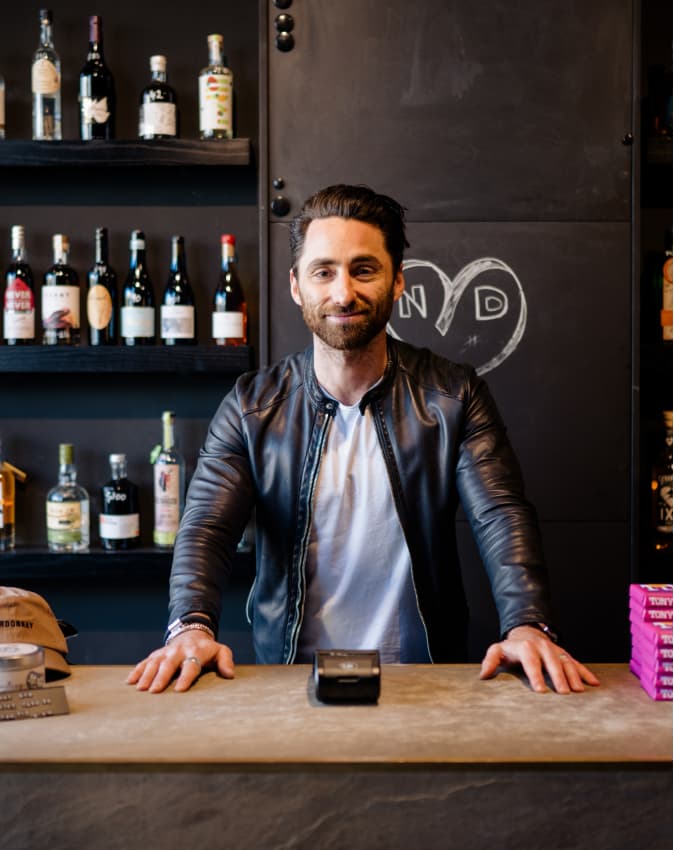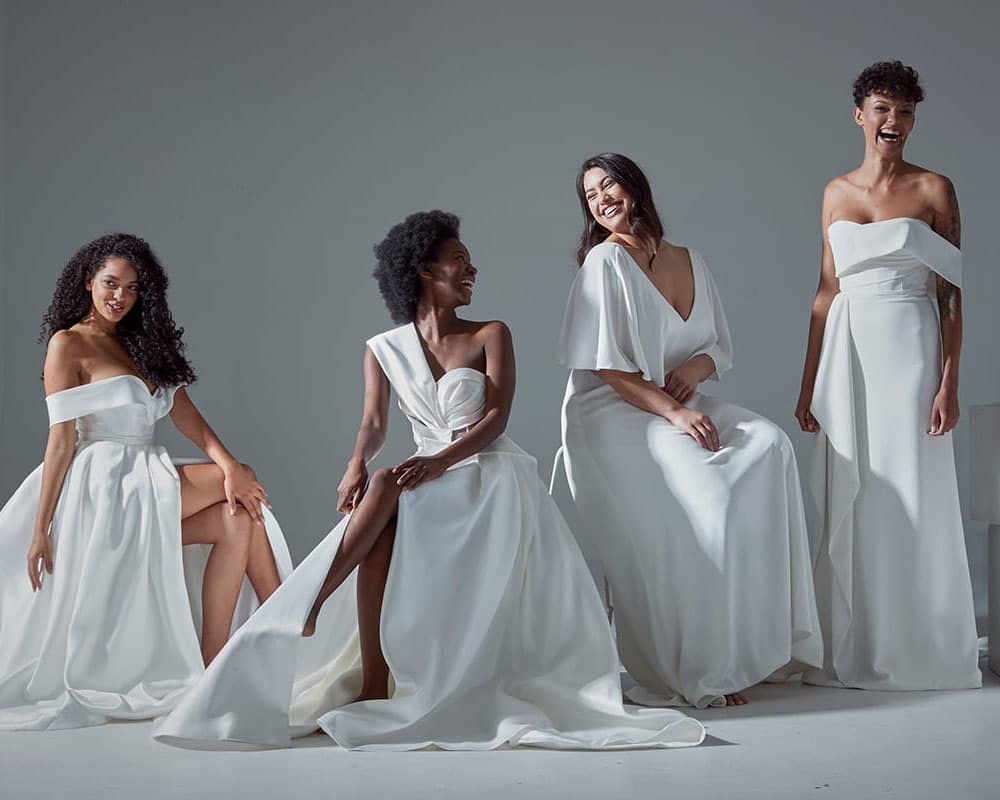
- Case Studies
Native Drops: Showcasing the Weird and Wonderful
Meet the artisanal merchants helping customers navigate the big world of wine.
The Native Drops team believe wine is something to be admired, discussed and understood. Each offering has been hand-selected for its innovation and, of course, taste. Weird and wonderful offerings are showcased alongside more traditional drops; there’s something for everyone. Sustainable farming and harvesting practices are prioritised, and small batch is the name of the game — so it’s in customers’ best interests to have a chat with the friendly, well-informed staff.
Native Drops operates two stores in Sydney — the first in the iconic beach suburb of Bondi, and a second outlet in Surry Hills. In both locations, customers are invited to step off the bustling sidewalk into a serene environment that feels more like an art gallery than a retail store. With polished concrete, suspended shelves and eye-catching floral arrangements, Native Drops is a far cry from the big name commercial bottle shops. Design of the space is prioritised, which is one of the reasons why Zeller Terminal sits atop each counter.
We sat down with co-owner Daniel Berman to learn more about Australians’ discerning wine choices, and elevating the experience of purchasing a drop through personalised service and conversation.
Where did your love of wine begin?
My love for wine began long before it became part of my profession. Initially, it was the social connectivity which surrounded sharing a bottle of wine: friends, colleagues, family all taking part and revelling in a bottle of wine created a sense of community, connectivity, and united pleasure.
Living between South Africa and Australia gave me a wonderful cross-cultural understanding of wine in the ‘new world’ and, as the years went on, my passion for wine transcended the boundaries of social significance and became a personal discovery of agriculture, art, geography, gastronomy and the relevant educational aspects of wine and its production.
This was further developed after some incredible wine-related missions with my wife to Italy. After some decent success in various spiritually-underwhelming business ventures, I ultimately took a leap of faith to convert my passion for wine into a commercial opportunity and have loved every minute of it since.
To me, wine is very much a collective ideal and not so much about a specific style or bottle. I think it t was many great bottles, over many happy occasions, that crafted my love for wine.
Tell us a bit about Native Drops.
I have always been enamoured with small wine producers — living their passion, honing their craft with desire, care and integrity, and working with nature. Particularly with those that have a connection to the production of wines that truly reflect the vineyard, those that craft their wines with minimal intervention, and who respect the land which they are farming. After my wife moved to Australia, we set about further exploring the local wine landscape together. We were always on the hunt for wines which we had enjoyed across vineyards, tastings, festivals, restaurants, or wine bars which reflected the artisanal approach to wine production.
It became apparent that at that time, in the early and mid 2010’s, there were very few retail outlets and drinking establishments that were championing local boutique producers of this nature. After many discussions involving some wonderful local wines, my wife and I decided to find a way to promote these types of wines and producers, and give them a louder voice in our community. This idea of creating wine that was representative of its place, coupled with the love for local producers, was how the concept of Native Drops was born and fuelled (and named).
After looking at various spaces, we found a workable space in Bondi with the potential for a bottle store, and within a short and very fast few months we were building the store. We had a friend who was interested in investing with us in the idea. Soon our wine dream became a reality.
Though the term ‘community’ is thrown around a lot as a marketing tool, it is truly our aim as a bottle shop promoting such an under-represented product to provide an educational and relaxed community hub for wine, and to change people’s perspective on what wine is all about. Part of this is tastings, educational masterclasses, collaborations with local businesses and artists but, most importantly, just creating a space and a vibe where anyone can be comfortable to discuss and learn about wine. And of course purchase brands that are a little different to what they may have known before.
It’s all about communication and connection with people.
Wine has always been a catalyst for these principles to me, and this is how we wanted to communicate to our customers. People were initially sceptical about the style of products we promoted, but it didn’t take long to change their minds. We find ourselves, five years later, having built countless relationships with our customers — now friends — all over Sydney and Australia and we have changed the way a lot of people think about wine. We consider that a major achievement.
How will these new elements help grow the business?
We haven’t really changed our formula since the start. The pandemic obviously brought challenges which did not allow us to fully express ourselves by doing things like tastings and events etc, but ultimately our community allowed us to remain successful. Adding product options like subscriptions are simply a way for those that cannot come visit us in store to still have a curated selection of the wines which we are currently enjoying.
What’s the difference between drinking and experiencing wine?
The landscape has changed a lot over the years. Artisanal and minimal intervention wine is now readily available through various channels and has become very popular, which is fantastic. Buyers are becoming more discerning and conversational with regards to wine.
This was not so much the case when we started. When we opened the first store in Bondi, the style of products we were selling were not easily available and often misunderstood. We had an idea to showcase the wines we promoted as a collection of art. An experience.
Something worth admiring, discussing, and understanding on a deeper level. We set up our fit-out to represent this idea. Almost like a gallery of wine.
Within our gallery, our aim is to have conversations.
These conversations allow customers to purchase a wine and feel comfortable and happy that they are walking away with something special, no matter the cost.
This is how we differ from most bottle shops and retail chains. Personal and very informed service in a space that is warm, interesting, and fun. This, we believe, heightens the experience not only of purchasing wine, but also drinking wine. Experiencing and drinking wine go hand in hand.
Your product line prioritises sustainability — is this something consumers are looking for?
Simply, our offering provides a framework for some of our beliefs surrounding wine and wine production. We want to champion producers who are committed to producing wines using minimal intervention. This includes respecting the vineyards and the land which they farm or acquire grapes from, as well as how they vinify the grapes and create wine. We believe this makes wines that are most representative of the vineyards they come from and, ultimately, the wines we love to drink.
We also like to support producers who have integrity and commitment to the industry. We consider these people Artisans. If the products are considered as ‘natural’ or any other term people want to use, that’s fine. Ultimately, we’re just a wine shop selling great wine made by great people (we think).
Artisanal products have gained popularity in recent years. There are many more bars and restaurants selling similar products, as well as many new stores with a similar focus to us. It’s fantastic to see such a strong development in such a short space of time. As businesses like ours have educated customers on new producers and styles of wine and the increase in popularity online and on social media, we have definitely seen a trend of more discerning wine drinkers in our communities.
Our customers have certainly shifted the way they purchase and even talk about wine. From memorising brands to discussing wine evolution over several vintages, our customers’ interests have become more in-depth. This involves being more comfortable with discussing advice and buying wine for more experience-based reasons. A lot of this has happened naturally through developing relationships via face-to-face discussions.
What prompted the switch to Zeller?
My biggest issue with previous EFTPOS terminal providers was the lack of personal service and poor customer service in general. They had let me down several times. It was very frustrating.
The Zeller brand has a personal touch, and the Zeller Sales team gave me a sense of security which other providers had not done. I felt like I was dealing with a smaller, local business, which felt more representative of myself and my brand.
I was offered competitive rates and the terminals were very well designed, and aesthetically much more cohesive with the vibe of the store. It felt like a good fit.
It was a very smooth transition. I find it easy to navigate the Zeller Dashboard, and the reporting is simple to use so I can manage various admin tasks on the go. The team is a pleasure to work with, and I’m happy I made the switch!

Let us help your business grow.
Zeller Sales is here to help you succeed.
Leave your contact details and we’ll be in touch soon.
Your details
By sharing your details with us, we may contact you from time to time. We promise we won’t bug you — and you can unsubscribe from communications at any time.












